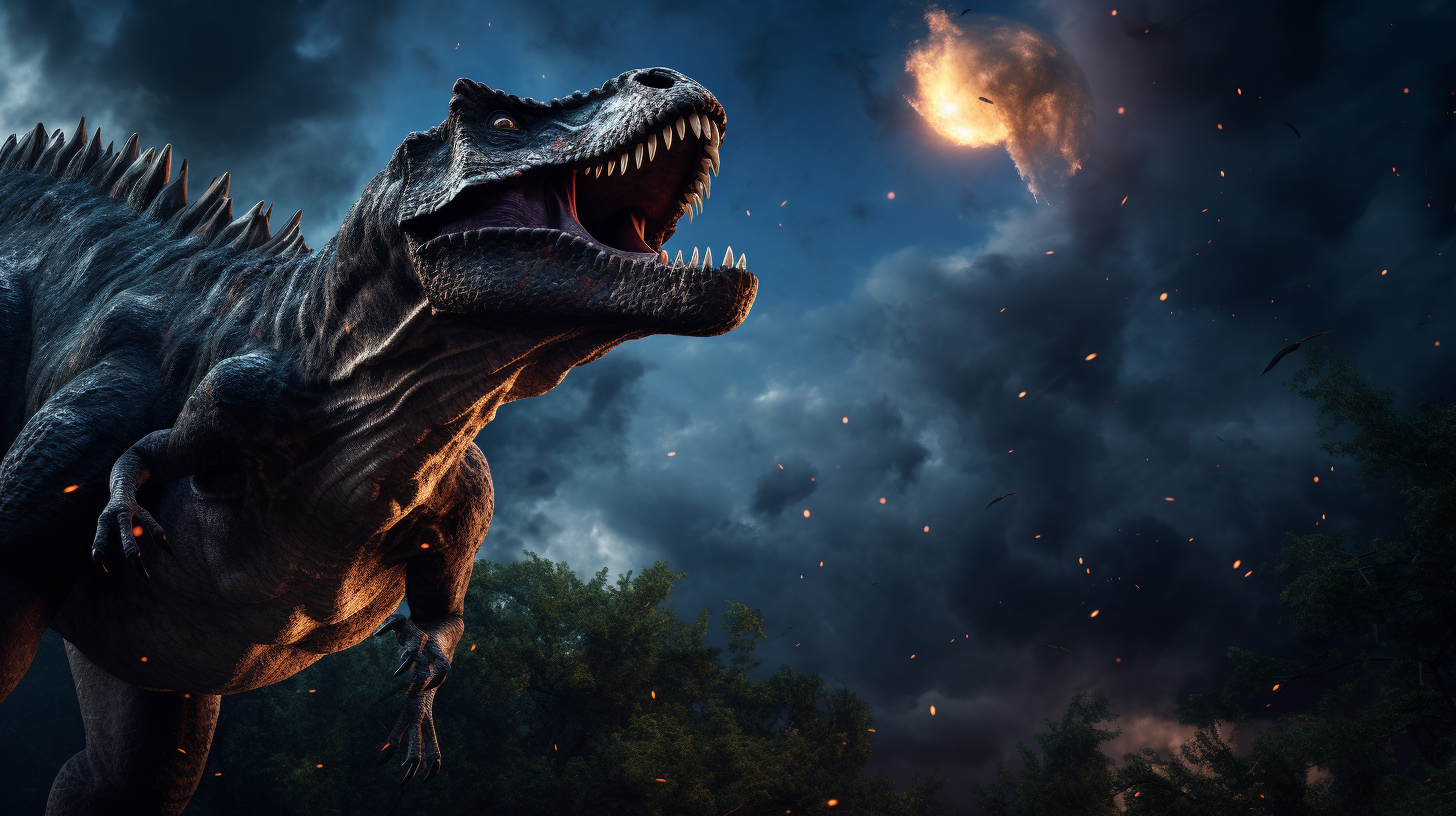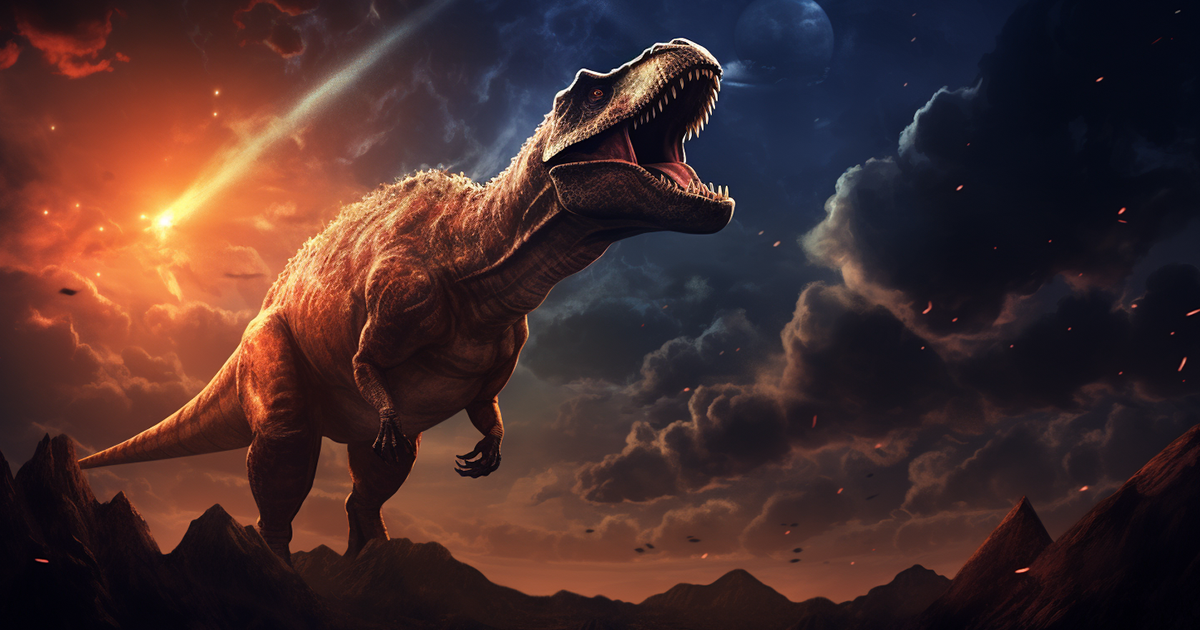When we think of the distant past and the mysteries that shroud it, the extinction of the dinosaurs is undoubtedly one of the most fascinating topics. We often imagine a world where these magnificent creatures roamed freely, and we can’t help but wonder: What if that catastrophic asteroid impact never occurred? Recent scientific research has proposed a tantalizing hypothesis that might change our perspective on the course of evolution and human existence.
In a realm of hypothetical possibilities, scientists suggest that if the colossal asteroid had not wiped out the dinosaurs, a unique branch of intelligent beings, “Dinosauroids,” might have emerged as the dominant species on Earth instead of us. This intriguing notion challenges our understanding of the evolutionary path that led to the development of Homo sapiens.
The timeline in question stretches back approximately 66 million years when the Chicxulub impactor struck Earth, triggering the Cretaceous-Paleogene (K-Pg) extinction event. This cataclysmic event brought about the demise of nearly 75% of all species on our planet, including the dinosaurs. However, what if a fortuitous twist of fate had intervened, allowing a select group of these prehistoric creatures to survive and adapt?

The Dinosauroids, as theorized, would have had the chance to evolve over millions of years, much like the small mammals that ultimately gave rise to modern humans. But what would these intelligent reptilian beings have looked like, and how would their society have developed? These questions fuel our imagination and encourage us to explore the intriguing possibilities.
In this hypothetical scenario, Dinosauroids might have exhibited advanced cognitive abilities and communication skills. Perhaps they would have developed a complex social structure and cooperative behaviors, similar to early human societies. The absence of competition from mammals like us could have allowed them to thrive and diversify.
One can speculate that Dinosauroids would have evolved unique physical adaptations as well. Their reptilian heritage might have led to enhanced senses or specialized features suited to their environment. It’s fascinating to imagine what kind of technology they might have developed and how their world might have differed from our own.
Furthermore, pondering the existence of Dinosauroids prompts us to reconsider our relationship with Earth’s ecosystems. Could their presence have impacted the biodiversity of our planet differently than humans? What ecological niches would they have occupied, and how would they have interacted with other species?
While this hypothesis offers an exciting avenue for thought, it remains speculative and based on a series of “what-ifs.” The asteroid’s impact forever altered the course of Earth’s history, paving the way for the rise of mammals and ultimately humans. Nevertheless, it’s essential to recognize that the study of alternative evolutionary paths serves as a powerful tool for understanding the intricate tapestry of life on our planet.
In conclusion, the idea of Dinosauroids evolving to dominate Earth in place of humans presents an engaging perspective on the evolutionary processes that shape our world. Although we may never unlock the secrets of such a hypothetical scenario, it encourages us to appreciate the complex interplay of factors that led to our own existence and the rich diversity of life on Earth. The extinction of the dinosaurs may remain a pivotal event in our planet’s history, but it also sparks our imagination, encouraging us to explore the myriad possibilities that the past holds.

10 thoughts on “The Alternate Evolution: What if Dinosaurs Had Survived the Asteroid?”
Comments are closed.